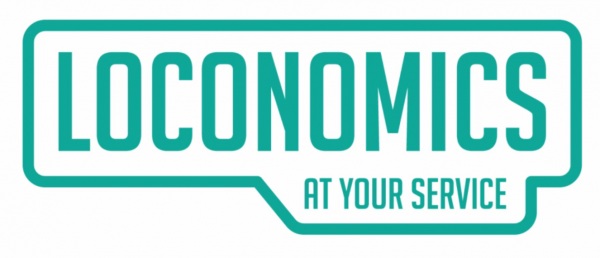Innovative thinkers are joining online platforms with co-operative models of business to create a new wave of digital organisations owned by the people.
And these platform co-ops are a template for the “new economy”, say organisers of a conference dedicated to the subject in February at Goldsmiths, University of London.
Open 2017 is bringing together businesses, NGOs and representatives from the third sector to hear from co-op development experts and software developers, who will outline the practical steps needed to set up platform co-ops.
Ahead of the event (of which Co-operative News is a media partner), we look at what is a platform co-op. Plus – with research from Josef Davies-Coates – we look at four organisations that have already set up as co-operatives.
Fairmondo

Fairmondo is a co-operative with 2,000 stakeholders, who have invested anywhere between €10 and €10,000.
The online marketplace, which promotes products that are fair and sustainable, is open to private and commercial suppliers who can sell any goods through the platform.
Shares cost €10 – and for that price, members have a vote in the general meeting and can be elected to the supervisory board. Members can also help shape the development of the co-op by joining a working group. It says it is “dependent on the small investors” and that its aim is to grow to create long-term independence.
In its rules, the co-op says changes the organisations’ principles need 90 per cent approval, plus it is open and transparent to all members – even going as far as publishing all of its banking expenses.
Stocksy

Stocksy is a stock photography website, which brings together photographers on a fair and equitable platform.
They pay a fair price for photographers’ work and describe themselves as “raising the bar”. As a co-operative it provides “more artist respect and support”. It also believes in “creative integrity, fair profit sharing, and co-ownership, with every voice being heard”.
Brianna Wettlaufer is CEO and co-founder of the co-op. She started the co-operative after being one of the founding members of iStockphoto, which later sold to Getty Images, and witnessed the “bigger focus on profit margins”.
Brianna realised that with a co-op she could put the “power back into the photographers’ hands”. She told Shareable: “It’s different from the feel-goodness of a non-profit. With a co-op, you’re obligated to have the voices of the people represented – they have to vote on how the business performs. Having all those checks and balances, we knew we could do something that was trustworthy to the people with whom we’d be co-owners.”
Loconomics

Freelance workers can offer services through Loconomics, a platform to help find clients and help clients find them.
The co-operative is open to all people who offer services, whether it is web design or dog walking. Launched in the Bay Area of California, the web service uses technology, shared ownership and community to strengthen the local economy.
Set up as a California Cooperative Corporation, the founders say on its website: “As a cooperative, Loconomics is an autonomous organisation that is substantially shielded from the lust for wealth accumulation and short-term gain, thereby allowing it to focus on activities that grow and spread benefit among the Owners and communities.
“Further, it is principally governed by its primary stakeholders – independent entrepreneurs – whose livelihoods Loconomics aims to support and enhance.”
The majority of owners will be freelance service professionals, but its constitution also allows for Loconomics employees to be owners. Once it reaches a total of 500 owners, it will open up the elections process for the board.
Modo

Modo is a car-sharing co-operative set up in 1997. It offers access to a fleet of shared vehicles across Vancouver. It started with just two cars and 16 members.
“As a member-owned co-op, we began with a goal to provide our members with great service and best value,” says its website. “And nearly two decades later — with more carshare operators to choose from — Modo remains the only one focused on maximising member service, not profits. Not bad for a little co-op with big dreams.”
It also says it has come a long way since maintaining log books in cars – now it tracks member usage through apps and technology installed in cars.
It has three classes of shareholder: 1. Individual members, who need to purchase 50 shares. 2. Associate members purchase 25 shares. 3. Business members that purchase 50 shares.
Shares are non-transferable, and only individual and business members receive rights. Associate members must live in the same household as an individual member, and under the co-op’s rules that individual member will be known as the principal member.
- Open17 is a two-day conference on the collaborative economy. Co-operative News readers receive a 10% discount on tickets. For more information, visit s.coop/open10.

